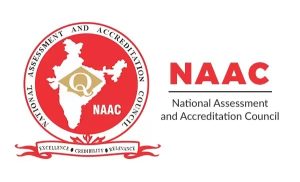National Law University Delhi
70th CONSTITUTION DAY NATIONAL MOOT COURT COMPETITION,
16-18 October 2020 (Virtual)
Theme of the Moot: The issue of stubble burning and its contribution to the air pollution in the NCR region from the perspectives of all stakeholders along with an examination of the legality of a blanket ban on stubble burning.
Constitution Day, also known as Samvidhan Divas, is celebrated in India on 26 November every year to commemorate the adoption of the Constitution of India. On 26 November 1949, the Constituent Assembly of India adopted the Constitution of India, and it came into effect on 26 January 1950.
The Ministry of Education (previously MHRD) along with the UGC charted a year long program in commemoration of the 70th Constitution Day, (26th November, 2020) and nominated the National Law University Delhi as the National Coordinating University.
The moot court competition was conceived as a platform to enable discussions among students of law and non-law universities across India on issues of environmental preservation as a duty of every citizen and examining the issue of air pollution in the context of stubble farming.
The ‘Committee to Operationalize Suggestions to Teach Fundamental Duties to the Citizens of India’, 1999 under the Chairmanship of Justice J.S. Verma recommended that “duty to vote at elections, actively participate in the democratic governance and to pay taxes should be included in Article 51-A.” This Report was directed towards the far-fetched goal of achieving responsible citizenry by emphasising on awareness regarding the provisions of fundamental duties and imparting the same through medium of education.
The National Commission to Review the Working of Constitution was set up to pass its expert comments and suggestions on ‘Effectuation of Fundamental Duties of Citizens’ determining the crucial question of whether Article 51-A served its purpose, and if not, where have people precisely failed in implementing Article 51-A? The Commission reiterated that “the first and foremost step required by the Union and State Governments is to sensitise the people and create a general awareness of the provisions of fundamental duties amongst the citizens on the lines recommended by Justice Verma Committee. Thus, the most crucial requirement remains the need to sensitise the masses regarding their fundamental duties. Though these duties are not themselves enforceable in courts nor their violation, as such, punishable, nevertheless, if a court, before which a fundamental right is sought to be enforced, has to read all parts of the Constitution, it may refuse to enforce a fundamental right at the instance of an individual who has patently violated any of the duties specified in Article 51-A.
Pleadings Rounds
The Moot was inaugurated on Friday, 16th October, 2020, by Professor Srikrishna Deva Rao, Vice-Chancellor National Law University Delhi, and Professor G. S. Bajpai, Registrar, NLUD.
24 teams from across the country, comprising some of the National Law Universities and prominent law schools had been shortlisted on the basis of written submissions submitted by teams from over 115 universities. These teams were judged by India’s top legal minds and professionals who specialise in the nuanced field of environment law and constitutional law. The participants had the opportunity of not only witnessing the highest level of advocacy but also learning from top professionals in the field.
The moot Problem & the rules were drafted by NLUD Alumni, Mr. Tarun Agarwal and Mr. Rakesh Roshan with able guidance from the Faculty Advisor, Dr. Risham Garg.
NLUD Committee for celebration of 70th Anniversary of lndian Constitution consisted of Prof. K P S Mahalwar-Convener, Prof. Ritu Gupta – Coordinator, members of the committee: Dr. Priya Rai, Dr. Risham Garg, Dr. Akash, Dr. Prem Chand, Dr. Samar lqbal, Sh. Syed lqbal Ahmad, Sh. Gurjinder, Dr. Sabhyata Prakash.
4 Teams in Semi-Finals
Army Institute of Law, Mohali
Government Law College, Mumbai
National University of Study and Research in Law, Ranchi
Symbiosis Law School, Hyderabad
The Judges for the Semi-Finals:
Professor Bharti Kumar, National Law University Delhi
Dr. Vishnu Konooryar, TERI University
Mr. Rahul Narayan, Advocate on Record
Ms. Pallavi Sharma, Advocate on Record
Mr. Ajit Sharma, Advocate on Record
Mr. Mrigank Prabhakar, Advocate on Record
2 Finalists
National University of Study and Research in Law, Ranchi
Symbiosis Law School, Hyderabad
Bench for the Finals
Hon’ble Justice Swatantra Kumar, Former Chairperson, National Green Tribunal, Former Judge, Supreme Court of India.
Mr. Shyam Diwan, Senior Advocate, Supreme Court of India
Mr. Nawneet Vibhaw, Partner, Shardul Amarchand Mangaldas & Co.
Valedictory Session and Awards
The Vice-Chancellor NLUD, Professor Srikrishna Deva Rao, welcomed the dignitaries in his welcome address and provided valuable insights into the environmental jurisprudence. Hon’ble Justice Swatantra Kumar, delivered his insightful comments upon the theme of the moot. Mr. Shyam Diwan, Senior Advocate, in his erudite address, gave valuable suggestions to students to consider taking up specialization in Environmental laws.
Hon’ble Justice Adarsh Kumar Goel, Chairperson, National Green Tribunal, Former Judge, Supreme Court of India, delivered the Valedictory Address on “Fundamental Duties and Environmental Jurisprudence: Contemporary Issues”. He delivered an enriching presentation upon the interplay between fundamental duties, environmental jurisprudence balancing the development of the economy and society. The need is to strike a careful balance between the two i.e., economic development on one side and pollution free, healthy environment on the other. A process needs to be developed by which development can be sustained for generations by improving the quality of human life while at the same time living in harmony with nature and maintaining the carrying capacity of life supporting eco-system. Thus, the focus must be at integration of developmental and environmental imperatives and sustainable development remains the only solution and administrative and individual actions ought to proceed in accordance therewith and not de hors the same.
The prizes were announced by Professor Srikrishna Deva Rao, Vice-Chancellor NLUD and Dr. Risham Garg, Associate Professor of Law and Faculty Advisor to the Moot Court Competition. The valuable support of the student organizing committee members was much appreciated, who tirelessly, coordinated from different parts of the country. Above all, valuable support from all the Judges, who judged the various rounds, faculty members and students who participated in the event, and certainly the inspirational guidance provided by the founder Vice-Chancellor of NLUD, Professor Ranbir Singh.
Winning Team: National University of Study and Research in Law, Ranchi
Runners up: Symbiosis Law School, Hyderabad
Best Memorial: Rajiv Gandhi National University of Law
Best Speaker: Aditi Singh, Army Institute of Law
These three days of intense and invigorating pleadings by participants from all across the country allowed deliberation on the issue of stubble burning and its contribution to the air pollution in the NCR region from the perspectives of all stakeholders along with an examination of the legality of a blanket ban on stubble burning.
The Pandemic has thrown at us challenges in various forms. We need to address and tackle them together. This should be based upon mutual trust, respect and concern for each other. Students have demonstrated that they are eager to engage in constructive activities. Institution may find out ways to involve them in pursuits most suitable for their talents that can help in accomplishing their full potential. We strongly believe and assure that NLUD is firmly committed to its obligations towards students and their overall and all-round welfare. Highest standards of fairness and transparency were maintained at all stages of the moot. We greatly appreciate the participation of the 115 teams from all across the country. We wish them all the best for the challenges that lie ahead.





